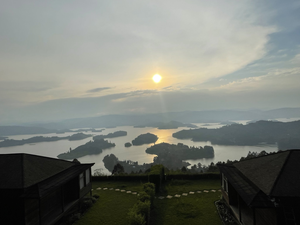Kampala, Feb 1 (IANS) As the world prepares to mark World Wetlands Day Sunday, Uganda is reaffirming its commitment to wetland conservation, citing progress in its restoration efforts.
In a statement issued before the day, the Ugandan Ministry of Water and Environment announced that the country will commemorate the day under the theme, “Conserving Wetlands Today for a Secure Tomorrow.”
Beatrice Anywar, minister of State for Environment, emphasised the role of wetlands in sustainable development.
“By acting now, we can ensure that these vital ecosystems continue to thrive and support biodiversity, filter water, provide a buffer against extreme events like floods and storms, avail water for domestic use and agriculture,” she said. “Therefore, by investing in wetlands today, we are essentially investing in a more resilient and sustainable future.”
Despite their importance, wetlands face increasing threats from unsustainable urban expansion, agriculture, and pollution. According to the National Environmental Management Authority (NEMA), the state environmental watchdog, Uganda’s wetland coverage has declined from 13 per cent to about 8 per cent of the country’s total land area. Experts warn this trend will persist without intervention.
Conservationists link wetland depletion to prolonged dry spells, unpredictable weather patterns, and subsequent loss of crops, lives, and property.
Anywar insisted that stringent conservation measures have reversed some losses, raising wetland coverage to 9.3 per cent. The government is reinforcing these measures to ensure further growth.
In 2023, NEMA gazetted 8,613 wetland areas under the National Environment (Declaration of Wetlands) notice, requiring occupants to vacate. An Environment Protection Force has been created to enforce the evictions.
In the middle of last year, NEMA intensified operations in Lubigi wetland, a key ecosystem supporting Lake Victoria, Africa’s largest freshwater body. Thousands of encroachers were removed, and authorities plan to restore the area following the demolition of illegal structures.
Government data show that over 55,149 hectares of degraded wetlands have been restored, while more than 3,000 km of wetland boundaries have been marked with concrete pillars, Xinhua news agency reported.
Anywar stressed the collective responsibility in wetland conservation.
“Every small action counts, be it reporting wetland degradation, raising awareness, generating scientific knowledge, participating in enforcement, restoration, and conservation, or financially supporting wetland action,” she said.
–IANS
int/as




























